I think the ‘70s are in danger of becoming a fetish.
One of the weirdest things about the way we digest pop culture is the way we feel the need to reduce entire decades into some narrow silo. It’s easy, but it’s reductive. One of the main reasons I am working on The Last ‘80s Newsletter (You’ll Ever Need) is because I dislike the way people reduce that decade to something like sixty movies, as if that tells anything like the complete story of what Hollywood and international cinema were doing from the start of 1980 to the end of 1989. The ‘70s are often described as this decade of freedom and invention, when old Hollywood crumbled and new Hollywood revolutionized everything. And, yes, that’s true.
But there were so many other things going on in the ‘70s that it’s not really fair to just describe it based on the highest highs. If you look at the biggest box-office hits for every year of the decade, there are just as many movies that look insane now as there are groundbreaking marvels.
As we grow this movie, one thing to remember is that hip pocket films are not necessarily the best movies of a given year or a given genre. That’s not how it works. We fall in love with movies for so many different reasons, all of which are valid, and I hope that the longer we do this, the deeper we dig into our pockets. Every time you say you love a movie and you explain that love, I think you’re telling people about yourself in some way.
And this week, we’re all three definitely telling on ourselves.
If you’re enjoying this podcast and you’d like to help support it, please consider subscribing to this newsletter.
After all, you’ll be able to read the archive of the original Hip Pocket columns, and you’ll get all kinds of other things to read as well.
Let’s jump right into the transcript of this week’s show…
DREW: Hi, everyone. My name is Drew McWeeny. Welcome back to The Hip Pocket.
Everyone has got movies they love, good movies, bad movies, movies they love for all kinds of reasons, and we carry them around in our hip pockets just waiting to share them with other people. I've been doing that in print for the last 25 years, and now I've invited my friends to talk about those films with me, as well as the films that are important to them, and you are invited to join us every week.
This is our fourth, fifth episode? Starting to get more comfortable with what we're doing here. Starting to, starting to relax into a rhythm with everybody, and I think I'm looking forward to these more and more each time we do them.
I'm joined as always by my band leader, my good friend Craig Ceravolo. Craig, how are you, sir?
CRAIG: Hello, Drew. How are you?
D: I’m good. I'm good. And we cannot fly this spaceship anywhere without the Han Solo to my Chewbacca, Aundria Parker. What's up?
AUNDRIA: Oh my goodness. Such an intro. I'm doing great. How are you guys? How are you guys?
D: Excellent. Excellent. Ready for the year to end. Ready? Done.
C: Let's, let's, let's get this over with.
D: Man, done. Ready for 2023 to be in the rearview.
C: Bye, 2023. Yeah. Wrap it up. Let's get this over with.
D: Yep. I'm I'm ready for I'm ready to get a little distance on it. And distance is good.
You know, you look back at, you look back at, say, the ‘70s, and, you know, it was a… it was a wild decade. Disco. Vietnam ended. Watergate happened. Elvis met Nixon, then he died. The Beatles broke up. Punk hit music like a brick through a window. Disney World opened and tickets were $3.50 for the entire day. And, oh, yeah. I was born.
So… cool decade, man. And I truly think the ‘70s is one of the two best decades of films I've, I've lived through. I think it's the most adventurous and truly the, the most change happened. So I'm excited. I'm excited. Talking about these, these three films, which I think, again, could not be more different. We, we all listened to the assignment and came up with a very different answer.
And so I'm gonna kick things off this week with my pick, which is a thriller starring the great Elliot Gould, the great Christopher Plummer, and… Susanna York. And it is the deeply underseen The Silent Partner.
[trailer for The Silent Partner plays]
D: Had either of you guys seen this movie before?
A: I had seen it before, actually.
D: Oh.
A: Yeah.
C: Look at you. Alright.
D: A few Christmases ago, Greg had introduced it to me and said this is a… it takes place around Christmas. Not your typical Christmas movie, but let's do it. And so, yeah, this was a revisit for me. I was so excited to watch it again.
D: That's so cool.
C: I felt like…
D: And how about you, Craig?
C: Nope. Never saw it. Had no idea what it is. And I am such a huge Elliott Gould fan that I was in heaven. Loved it.
D: I saw this the first time when I was a kid. And my grandmother used to have me come over. My, my dad's mom used to have me come over and stay at her house, and she had cable. And so the rules were she'd go to bed and then she didn't know anything that happened after that. And I could just watch whatever was on.
C: Cool grandma!
D: And I would stay awake all night long. I was like, I don't care. I don't care what's on. What is this? What's… okay. I'm watching it. What is this? I don't care. I'm watching it. And Silent Partner was one of those. I was not prepared for it. I did not know what I was getting into, and, man, the end of this movie fucked me up. I was like, I think I was ten or eleven when I saw it, and, oh, wow. Okay. For those who have not seen it, Elliot Gould plays a bank teller who works at a small Toronto bank in a mall. And there is a guy who's been casing the bank for a while and robs it dressed as Santa Claus, and Elliot Gould kind of screws the guy's robbery up and in doing so realizes, huh, nobody realizes he didn't get all this money that I have right here. Maybe some of it can go home with me, and then the bank robber gets blamed for it, which is a great plan until the bank robber sees you on TV and hears that the number is different than the number he took home, And then he wants his piece.
And it is such a great mousetrap movie where… I love that Elliot Gould makes smart decisions all the way through, and it doesn't matter. He's not making dumb choices. He's making good choices, and he's still getting completely worked by Christopher Plummer for a good chunk of this film. And Christopher Plummer who… you know, we talked about in our last episode with Mary Poppins and Julie Andrews, who… obviously Sound of Music was a giant touchstone for her. And Christopher Plummer in that movie is the, the sort of prim and proper… most, like, he is upstanding. There is a squeaky-clean quality to him in that film. Then you see him in this movie and ten minutes into his appearance on-screen, you're like, oh, shit, this is a different Christopher Plummer.
A: When he comes out with the eyeliner and the fishnet tank top, you know you're in for something good. Okay?
C: Yeah, man.
[clip from The Silent Partner plays]
D: Wild.
A: Yeah.
D: Wild performance from him, and, and truly… terrifying. I think he's really scary in the film because you don't know what he's capable of.
A: For sure. He's very sinister.
D: The movie makes it feel like anything could happen. This guy is pretty much capable of whatever. I love Elliott Gould and I just watched The Long Goodbye with Lisa about a week ago.
D: Oh, yeah? Had she seen that one before?
D: She had not. She'd never seen it before.
C: Wonderful.
D: And it's the same kind of thing for me. I… there's something so great and shambling about the way he approaches things in both of these movies, where you know he's thinking… you know he's constantly calculating, but he doesn't look like he's running. He looks like he's got AM radio playing in his head all the time. Like he is the most hilariously mellow sort of shambling personality. I love him so much. And I love his weird relationship with Susanna Susanna York in this film where she's not sure what the fuck is going on at any given moment.
C: Yeah.
D: Sometimes he's totally into her. Sometimes he's totally not. It's, it's a, it's a fascinating movie. I love the whole subplot with John Candy and the other teller and how John Candy is clearly in over his head and has no idea what's going on and is… like, I love that whole thing, and it's all kinda played in the background. And John Candy doesn't really say much, but you get a whole story that unfolds involving him.
A: I'm adding this to the list of two movies where John Candy is a total stud. Okay. First of all, this one. Second of all, Splash. I love movies where John Candy is an unapologetic stud.
D: Just a beast.
D: So great. So great.
A: I just, I just rewatched Splash. Okay. I'm gonna tell you something deeply, deeply personal here. I just rewatched Splash…
D: Mhmm.
A: … which I hadn't seen since I was a child. Too small to have seen it. Don't remember anything about it. The one thing that I remembered in that movie from being a kid and not knowing what Penthouse letters were, was John Candy talking about how he's, he finally got his Penthouse letter printed, and it was…
D: Yep.
A: … “No Longer a Lesbian.” Like, that was the one thing I knew about Splash.
C: So funny how Splash was a family movie, and you go back and watch it and go, what the fuck?
A: And the end of that movie is like, What? What? Anyway…
D: I was fourteen when it came out. We took my sister with us, who was nine and she was really working on the reading thing.
A: Mhmm.
D: So during the scene where John Candy's trying to talk their way past the guards, and he says, “I know a little Swedish,” and all he knows is the Swedish from the porn films, my sister loudly read the subtitle…
C: Oh, no.
D: … so that the whole theater heard her say, “Hey, baby. I have a twelve-inch pennies,” and the theater never recovered. Fucking never recovered, man. End of the world. So funny.
C: That's so great. But great film. Why is John Candy in this movie? I don't know.
D: I love, I love John Candy in every movie, but I love, like, the… I love seeing the SCTV guys show up just as working actors in stuff. This was directed by a guy who doesn't have a ton of movies that you'll recognize, but there's one starring Rip Torn called Payday which we will definitely be doing at some point on the show. It is a terrific Rip Torn showcase. And, and this was written by Curtis Hanson…
A: Right.
D: … who everybody knows from LA Confidential and…
A: Wonder Boys.
D: … yeah. Hanson's early career was all sort of Hitchcockian thrillers. There was this. There was The Bedroom Window. There was, like, that's what he kinda wrote at the beginning of his career. And I feel like it was only later that he transitioned into more.. sort of a broader scope as a filmmaker, and LA Confidential was sort of a transformative moment for him. I think before that, if you look at, like, The Hand That Rocks the Cradle and things like that, those were his hits. Those were the movies we knew him for. This definitely feels like he's warming up to all of those films he made later.
[clip from The Silent Partner plays]
D: Craig?
C: Yeah.
D: What was your movie? What was your movie this week?
C Well…
D: … it couldn't, couldn't, couldn't have been a movie that encapsulated the entire decade in one film, could it?
C: No. It could, couldn't have. We're talking…. talking about 1975’s Nashville.
[trailer for Nashville plays]
C: I, I have watched this movie literally thirty times, and it… every time I watch it, I see something different. It is quintessentially the 1970s to me. Now it's got Elliott Gould as a, as a, as a walk-on cameo, but that's… he's just, he's just icing on the cake. What you've got is Lily Tomlin. You've got Ned Beatty. You've got, god, Keith Carradine. Keith?
D: Yeah.
C: David? David Carradine.
A: Keith.
D: No. It's Keith.
C: Carradine. Yeah. Keith. Yeah. You've got Karen Black.
D: Oh. And Henry Gibson.
C: I can't. There's so many people. Henry Gibson.
A: Shelley Duvall.
C: Shelley Duvall. There's… the cast is amazing. Everything about it. I love… the music is ridiculously raw, which I love about it.
D: Yeah. Yeah.
C: So I am… this is the movie that everyone has to watch. This is my hip pocket movie for the 1970s, hands down. Sometimes you have a hard time picking things, but this was a no-brainer for me.
D: It's funny because I, I love Altman, but this has always been one of the ones that was harder for me to warm up to. And I think I saw it too young was the problem. And I didn't… and I didn't really warm up to it at first. And it was really only in the last, like, ten years when I revisited it that it all kinda opened up for me, and I, I finally fell in love with it. And I do think it's a a terrific, terrific movie. I think part of it was I grew up around… I, I grew up in the South, as you did, Craig. And…
C: Right.
D: … you know, I, I grew up around country music and around, sort of… I, I have a lot of family from Nashville and stuff. That's not the movie… that's not what he's making a movie about.
C: No.
D: He's making a movie about the idea of Nashville as sort of a… what the identity of that town is at this particular moment and how it is a crossroads. And I think that that thing that he does so well here… that Altman, when he's on fire, does beautifully is… you really do, at a certain point, stop feeling like you're watching a movie in the sense that it does all the things a movie does. It is just like you're… got a god's eye view of all of these people, and you're just floating in and out of their lives for this one 72-hour period. And I, I don't think there's anybody else who does anything like this on the scale that he does or that gets their casts as comfortable with this kind of improvised loose shambling thing where they're talking over each other and you never know what he's shooting or what he's recording or what he's gonna use. And so you're not giving the same kinds of performances you give in any other film. Everybody just always has to be 100% on, no matter what's happening in a scene.
C: I love it.
D: It's kind of amazing.
C: Yeah. The, the, the car crash at the beginning, which is…
D: Oh.
C: … I, I thought about that this viewing. It's like everybody has to be doing whatever they're doing, whether it's improv or they're doing their scenario inside the car, inside their little vignette…
D: Yeah.
C: … because you don't know when he's gonna come… that that camera's gonna swing around to capture your performance. So it's almost like it's just this, this environment, it's like everyone is working at the same time because it's just one take. It's insane.
[clip from Nashville plays]
C: Short Cuts is kind of like his… this feels like Short Cuts to me.
D: And Short Cuts is the one that I, I loved when it came out, but I think also that I, I saw it at the right moment. Like, I was in my twenties. I was living here. I was, it was about LA. I absolutely connected to Short Cuts when it came out.
C: Same.
D: But, yeah, I, I also love the fact that everybody had to write their own music. Like…
C: Yeah.
D: … so you've got people writing, writing their real… like, Keith Carradine won the Oscar for “I'm Easy.”
C: Yep.
D: That's crazy to me. How often does that happen, where a character… where the actor inhabits it so fully that, yes, you're even creating the art that the character creates.
A: That is also amazing. I had no idea.
D: Yeah. They made… and that was, that was a big part of who he hired, Aundria, was finding people who were willing to come in and kind of take that… because you'd look… can you imagine how ridiculous you could look as an actor trying to do country music in the first place, but then to authentically feel like somebody who was on top of the charts?
A: And it's particular… it's interesting that you say that song, too, because there is… that was the moment in the film when he's singing that, and I'm, like, okay, this is somehow the most realistic, authentic, genuine… like, this feels like the ‘70s. And I'm, like, you know, it's not a period piece. It was the ‘70s. But to me, that performance, in particular, encapsulated everything about it. So for you to hear… to say that he was awarded for it is is pretty rad. And to hear that he wrote it himself is even crazier. Like, it was…
C: I know. You know? Yeah. Oh my gosh. But, you know, Ronnie Blakely is not a great singer.
A: Yeah.
C: You know, Karen Black is not a great singer. So for them to give it all their… for me, it even is, is a plus, not a minus to me.
A: Mhmm.
D: 100%. Yeah. And I think it kinda nails what the film is about, which is that, that… the, the desperation that you feel when you're in a town like Nashville where everybody comes because they all have a dream…
C: Yeah.
D: … and 2/3rds of them don't have any talent to back that dream up.
C: Yeah.
D: So you have this constant wave of desperation hitting you everywhere you go and this, this need that just radiates from people. And I love the fact that a lot of the performances feel like they are very raw, very real, not super-polished. And…
C: Yeah.
D: It does. It works for me, man. I think it's great to…
C: … heartbreaking.
D: Yeah. I'm sorry?
C: It's, it's heartbreaking to me.
D: I, I really find… I find the whole movie devastating. I think Shelley Duvall, who beamed in from her home planet for this movie…
A: Totally.
D: … just… wow. She is something else, man. And, you know, Altman, this is really the the break for her. And just… I can't imagine anybody else physically looking like that or doing what she does. Same thing with Karen Black. I feel like Karen Black makes choices no other human being on the planet makes when she's in front of a camera. And it's the reason that she's so interesting is you're like, wow, I did not… I don't know where that came from. I don't know how that… that's wild. But I, I, I think the film is prescient in terms of the relationship between entertainment and politics.
C: Yep.
D: And if anything, it feels more on-point today.
C: Yeah. The whole outsider presidential candidate felt very weird now in the Trumpian era for me. It was very populist. It was very… it, it had a more sinister feel. I mean, I don’t wanna get political, but it had a more sinister feel to it after that. You also have to put it that, you know, this was the year before the Bicentennial, which was… everyone was, like, hyper-patriotic during this time.
D: Yep.
C: I was only two, but, I mean, it was definitely… I was only one. But it, it… in ‘76, everybody was just like crazy for America. So I, I really… yeah. This is, this is exactly… this is more about the state of the union than any other film in the decade for me.
D: And I think what you said about the, the sinister undertone to it, that's perfectly appropriate for the time, too, because, you know, this is where we're, you know, we're dealing with Watergate and the idea that our president is a liar, and we're dealing with Vietnam and the disappointment of that, and we're dealing with the assassinations of so many important figures in the ‘60s, and sort of the hangover from that. So, really, there's this fear that we're never gonna get it right again, and it's never gonna be good or pure again because it's all… the violence is such a big part of the process now. And I think Altman nails that. Like, there's… you don't know for sure something bad's going to happen, but you feel it.
C: And yeah. And not to give away the ending too much, but something bad does happen. And it's so jarring because, you know, for two and a half hours… it's so long. It's long. But it, it, it, it's dense. It's, it's kind of happy-go-lucky and funny and kind of poking fun at some of these people…
D: Yep.
C: … and then something horrible happens at the very end. It kinda shakes you into focus that, you know, this country is fucked. Right? So, I mean, it, it's… and we're still fucked.
A: I was gonna say, just hold on, guys.
C: Yeah. Yeah. Yeah. Hold on to your seat. Do you think this is bad? Just wait till 50 years later. But, yeah. I love it. I'm, I'm so happy to be able to share it. Have you seen it before, Aundria?
A: Absolutely not. It was brand-new for me.
C: Okay.
A: And…
C: What'd you think?
A: … my… I enjoyed it. I, I need to watch it again, though, because there was… and I think I felt this way with other Altman that I've watched… there's so much going on all the time that it… and even though it's kind of at a slower pace or, like, it's not frantic, but it's a lot to take in. So I think this movie will benefit from another watch. So…
D: They're incredibly dense films. Yeah.
A: … so you can just get, like, a… like you said, you see something new. You have to just get the layers as they come to you. But what I did enjoy was, having rewatched Wedding Crashers last week, Henry Gibson is the priest in that movie at the, the… Christopher Walken's daughter's wedding. And I, I think it's almost a silent performance that he gives, and I'm looking at him with the… I… honestly, in Nashville, I don't know if that was a toupee or just a weird dye job or what was going on with his hair… but I'm looking at him going, I know this man, but much older. And when I finally put it together, I was like, that's the guy from Wedding Crashers!
D: Yeah.
A: What's her name? Ronnie… I know her as the mother from Nightmare on Elm Street, the original Nightmare on Elm Street.
C: Yes!
A: So I have all these… and I, you know, Shelley Duvall, you know, Fairy Tale Theater. And I have all these other touchstones for Karen Black and all these other people. So seeing them altogether, kind of much younger than I've seen most of them, was… it was incredible. It was really…
C: And the mom from Freaky Friday. Don't forget.
A: Yes! Yes. So it was… it was… I really, I enjoyed it. I do, like I said, I do wanna watch it again, though, because I don't feel like I got everything from it. And I… you know, you can't really get everything from a film by watching it only once. So…
C: And I, and I love that he clearly, he pulled some locals, like the, the, the singing duo, the very short woman with the very tall woman, who were singing the, the, you know, those kind of, that kinda character that were clearly part of Nashville at the time… it’s really kind of, it's fascinating to me. I love them.
D: I, I like the fact that so much of this is clearly based on real people. Like, Barbara Jean is…
C: Yeah.
D: … somewhat Loretta Lynn.
C: Right.
D: And Keith Carradine is kinda Kris Kristofferson.
C: Yes. Yes.
D: And I think my favorite of those is that Geraldine Chaplin, as the journalist, is basically playing Jean Tewkesbury, the… Joan Tewkesbury, the writer of the film. And knowing that… it is not the most flattering self-portrait I've ever seen.
C: Oh, yeah.
A: Oh, not at all.
D: And I think that's, that really, to me, speaks well of Tewkesbury, where she understands that her coming in and trying to digest all of this… it's impossible. You're not gonna get it all. You, you're gonna get a surface, and you're going to get some some general stuff, but you're not, you don't really understand Nashville after three days of driving around. And I… everything that comes out of that journalist's mouth, she's a ding dong. And I kinda love that that is very much Joan's self-inserted character. So it's…
C: Yeah.
D: … she's not letting herself off the hook. This is not, hey, we're from Hollywood! Look at all these rubes, and look at how… That's not this movie at all. And I think, I kind of, when I was younger, felt like it was a little bit more Altman making fun of these people. And I look at it now, and I think there's enormous empathy for everybody. I just think he feels like the world is going crazy.
A: Yeah, I feel that, too. He has a deep affection for these people. For sure.
C: Well, you know, Henry Gibson's such a buffoon, like a clown in the entire thing. The Nudie suits, and he's, you know, this little guy who’s got this big personality. But at the very end, at the.. in the, in the, in the crisis that's happening, he kind of steps up and is… and it's, and it's, kind of, this, you know, he gets shot. I mean, not to give it away, but, in the arm, and he's, like, don't worry about me. You need to worry about… I'm like, he really, kind of… that's what I noticed this, this go-round, too, is… you're right. Like, you can make fun of him as much as you want, and everybody does around him, especially the campaign manager.
D: Yep.
C: But at the end, he really is the one that has a genuine affection for Nashville as a town. Remember, he says, “This isn't Dallas. This is Nashville.”
D: Yeah.
C: “They can't do this to us.”
D: Yeah. I think that's… I, I, I think that's the trick of the film, is that it never feels like it is condescending.
C: Right.
D: And when you're doing satire like this and you're doing, especially social satire, it's so easy to tip into making fun of the people and doing it from a distance or doing it from a position of we're, you know, we're better.
C: Right.
D: That's not this movie, man.
[clip from Nashville plays]
D: Alright. So, ‘75 was the year that another genuine American classic came out and pretty much announced Steven Spielberg as one of the most exciting filmmakers in the business. That was, of course, Jaws, a movie that not only artistically triumphed, but shattered box-office records and changed the perception of what box-office could be in this country. As a result, almost inevitably, there was a sequel to Jaws. And that sequel was your choice. So let's talk about it, Aundria.
A: Oh, my God. You know…
D: Let's talk about Jaws 2.
A: On the…
C: Jaws 2!
A: Let's talk about Jaws 2. Has anyone ever said that before in the history of… on our last episode, Drew, as you were wrapping up, you said we were talking about the ‘70s. Explosive, exciting, changing times, you know! Filmmaking like it had never been done before! And all I'm thinking in my head is… Jaws 2.
[the trailer for Jaws 2 plays]
A: Of all the… of all the, you know, The Silent Partner and, and, the beautiful Nashville… Jaws 2. Why did I pick Jaws 2? Jaws is one of the greatest movies ever made. I don't think that's up for debate. And it's so wonderful and so classic, but I don't know many people who have seen any of the sequels. And Jaws 2, with a big disclaimer next to it with a huge asterisk, is not bad. I don't think it's bad. I find it incr… okay. Craig is giving me a look like like I just need to be wiped off the face of the planet.
D: [laughs]
A: You can't…
C: I'm sorry. I forgot you could see me.
A: Like, the… it was… he looked at me like a parent looks at you when they say they're not angry. They're just disappointed. That's what I just got from Craig.
C: Yeah, well, maybe.
A: You can't compare Jaws 2 to Jaws when you're watching Jaws 2. But to get the chance to see Roy Scheider be Brody again and to get to see some fun shark stuff… and just to revisit Amityville, to me… Amityville? Amity. No. Amity Island, not Amityville. That's a whole other movie. Sorry.
C: That would have been a great movie, though, if the shark was in the house and he had little arms. That would have been more entertaining.
A: Amity does mean friendship. I don't know why I have a soft spot for this movie, but I do.
C: I love you for it. I love that you, you love this movie so much.
D: It's, it's funny because I… watching it now and watching the way this film is structured, it, it's not the first film at all. It's a slasher film.
C: Yeah.
D: It's structured much more like a slasher movie, with… just with the shark as a slasher. He's Jason this time.
A: Yeah.
D: And it's fascinating because it feels very much of its moment because, you know, Halloween was this year. This is still a little bit before Friday the 13th. So it's got the rhythms of these movies that we're about to get really used to, but with a shark. And there is some… there is something really great about this movie.
C: I think I was live-tweeting you guys when I was watching it.
A: Yes. You were. You were like… yeah. Yeah.
D: I love Keith Gordon. I think any movie where Keith Gordon is a teenager is…
A: Completely agree.
D: … I give it an extra star because Keith Gordon's in it.
A: Keith Gordon.
D: And I seriously, I cannot get enough of that kid on camera. I think he's a great director, but I think him as a teenager… he has this great sort of sarcastic… I, there's something about Keith Gordon I love. I really think he was…
C: Yeah! Sneak preview…
D: … terrific on camera.
A: Exactly.
C: … he directed my pick for the eighties.
D: Yeah. That's right. That's right. We'll be talking about Mr. Gordon again.
C: Yeah.
D: Yep. And it's funny. It, it… I think that the emphasis on the teenagers, the emphasis on, sort of… it's weird because, you know, they, they filmed half of this movie before they pulled the plug and they changed directors.
C: That's shocking to me. It's so even.
D: And the…
C: … because the…
D: … but what's weird is the original version of this, Amity was supposed to be basically haunted. Like, the original footage that they shot, the town was dead. Like, everybody had left. Businesses were closed. It was about how a year after the shark attacks, nobody wanted to come to Amity, and the entire town was suffering as a result. And they shot a whole bunch of moody stuff, and I guess what happened was they looked at it and they were like, this is a fucking bummer. Like, it's appropriate thematically. It makes sense story-wise, but what a fucking bummer. And so they really tried to make it more, more of a ride for the, for the film. So everything they did once Jeannot Schwarc came on… I don't know how to say his name, and I know I always say it wrong… but was meant to make it peppier. It was meant to have more fun. And so I do think this the slasher movie structure is them intentionally trying not to make the first film again. And they, they had to come up with a whole different kind of horror film, basically, than, than the first one. Yeah. Fascinating. Fascinating second movie. And you can tell, like, there has never been a filmmaker that has run faster from a franchise than Spielberg at the end of the first film. Like, you're never getting me out of the water again. Go fuck yourselves. Nope.
A: Great. Great.
D: But I… at the same time, you've got to imagine that from a distance, he's watching these going, oh, come on. Oh, come on. Come on, man. It's gotta be driving him fucking buggy at the same time.
C: Like I'm looking over my notes that I sent you guys while I was looking at it, watching it the first time. It felt like a made-for-TV movie a little bit.
D: I'm sure the budget was… I, I'm guessing they were moving fast because they were, again, reshooting half of that movie after they had already started, and they're trying to do this thing cheaper than the first film.
C: And I feel like the second or the third act where the kids are stranded on the boat and they're trying to get away from the shark was a far more interesting movie.
A: I love that.
C: I feel like if they would have extracted that out and made it into a movie just about that, it would have been a more interesting watch.
D: Yeah. Because the whole first half where they're like, is there another shark? Is there? Oh, come on. Oh, come on. We've seen the poster. There's another shark on the poster. It's behind the water-skier. Come on. We've seen it.
C: Right. It's called Jaws 2.
D: It’s called Jaws 2. There's another shark.
[clip from Jaws 2 plays]
D: So yeah. It's, that's one of those narrative, like, circles where… if you are walking into that theater, you're ahead of them by half an hour. You can lose all of that shit. We don't need the is-there-or-isn't-there. Just, there's another shark. It's terrible. Get the truck. Get the kids out on the water. Yeah. Yeah. And I'm, I'm with you. I think that's the best stuff in the movie. Once they're out there and they… the little… and, you know, god, the little kid on the boat. Ugh.
A: And I do, I do like the aspect of, like, wow, you thought Brody was damaged before. He's even more damaged now because that shark really fucked him up. You know what I mean? So kind of, there's kind of that, like, no one believes him even more. He's having, you know, it's just, yeah. It's just fun.
C: Roy Scheider did not want to do this. Right? Like, he had…
D: Oh, no. Forced at gunpoint.
A: Oh, really?
D: There's literally a dude standing five feet away, right off-camera with a gun. Yeah. Yeah. The entire time, like, don't you fucking don't move, Roy Scheider.
C: Don't you dare do it. And then Lorraine… what's her name? Lorraine…
D: Lorraine, Lorraine Gary.
C: Yeah. Who comes back in Jaws 4.
D: I love the fact that her husband…
A: She came back.
D: Yeah. Because her husband's Sid Sheinberg. Her husband runs the studio. I'm sure that the the marching orders on Jaws 4 was, listen, my wife wants to do a sunroom, so we need to let… let her star in a movie again. Jaws 4. There we go.
A: Okay. Is is Michael Caine busy? No? Alright. Get him on the horn. Yeah.
D: Wow. I feel like I feel like Jaws 4 and Jaws 2 both have performances where somebody's… they're essentially there under duress.
C: Yeah.
D: And, and… yeah. And yet you get genuinely hilarious work as a result. Michael Caine's work in Jaws 4 is fall-down funny.
C: Yeah. It's just…
D: Fall-down funny.
C: I was just on that island last month.
A: Oh, were you? I also… I, in fact… discussion of Jaws 2 now and Jaws 4, I would be remiss if I didn't say I watched a lot of Jaws 3 on VHS as a kid. And that was my introduction to Dennis Quaid, the scary decapitated head, and rewatching that also. What a trip. Wow. I think…
C: Wait a minute, Aundria.
A: What?
C: Oh, go ahead. I'm sorry.
A: I was gonna say Jaws 3 makes Jaws 2 look like Jaws. So…
D: Mhmm.
A: You know?
C: Well, you didn't see it in 3D. Like I'm sure I saw it. Maybe Drew probably saw it in…
D: I did, indeed. I did, indeed, see it in 3D in a theater.
C: (with great shame) It was my favorite Jaws.
A: Yes! YES!
C: The spear gun went right through you.
A: Mhmm.
C: The head was floating in the water. That was…
D: I was 13. That was… that whole 3D run was a big deal when that happened, the first time. That was a big time.
C: Remember, what was it? The, The Treasure of The Lost Crown or whatever?
D: Treasure of the Four Crowns.
A: And the third Friday the 13th…
D: That was the second film by the… yeah, there was Friday, but Crowns was the second film from the Italian guys who did Comin’ At Ya!
C: Please tell me that wasn't a porn.
D: Sorry. Hold on. My dog's having a meltdown. Hold on.
C: We're gonna edit that out, by the way.
A: No. You will not edit that out. You leave it in because you saying “a porn” is the best thing I've ever heard. Oh my lord.
C: What? That's not what you call it? You don't call it a porn? Are you guys watching a porn now?
A: Hey, guys….
C: Hold on. Okay. Alright. That's fine. That's fine. Make fun of the dad. That's cool. What do you wanna call it? A porno? Like, what do I call it? Porno. Tell me what to call it, Aundria.
A: Just porn. Just porn.
C: Oh, wait. Oh, it's like the Facebook?
A: Yes.
C: Did I pull an old man?
A: It's cleaner. Yeah. “Just tell me that wasn't a porn.” (laughing) Is that a porn? Are you guys watching a porn in here?
C: You guys watching a porn? Where's Drew? Are we just the… is it just The Aundria and Craig Show right now?
A: The sidekicks have taken over. Oh my lord.
C: Oh.
A: I… yeah. Watching Jaws 3, like, a couple of years ago or whenever I watched it, and seeing the 3D elements, though, it just makes me sad, because I'm sure they looked awesome in actual 3D. But not in 3D? It's just a mess.
C: Probably not.
A: Yeah.
C: I… in my memory, they looked awesome.
A: Oh, yeah. Yeah.
C: But it's probably, like, how I remember Nintendo looking like super-realistic graphics, and then you watch it now, and you're like, this looks like garbage. So in my mind, it was, it was amazing. I'm sure it was too early.
D: Sorry. My dog is fucking crazy.
C: We were talking about…
A: How, how Craig said he was gonna cut out saying, “Tell me it wasn't a porn.” And I said, did you just say...?
D: Don't you dare.
A: … “a porn”?
C: Oh my god. What would it… “Tell me it wasn't a porn.” What should it have been? You. you, you give me a, a line-reading of what that should be.
A: “Oh my god. Was it porn?”
D: Comin’ At Ya! was a, a spaghetti western, and it was an R-rated spaghetti western that was literally nonstop 3D gags. That was the only point of the movie. It was… and my mom took me to, I talked her into taking me to see it. We made it through eleven minutes, and there is a…
C: Oh, no.
D: … brutal gang rape eleven minutes into it in 3D. And… all I remember is my mom… literally, back-of-my-shirt dragging me up the aisle of the theater, and we went and saw Arthur, which was playing next door, instead. So…
C: Out of the frying pan, into the fire.
D: Yeah. Yeah. Which she loved. Arthur was hilarious because alcoholism, of course, is very funny.
A: Well, nothing's funnier.
C: I know it's crazy, but it's true.
D: That whole run of 3D…
C: Yeah.
D: … is one of the weirdest moments because it's so bad… low-tech 3D… that it wasn't like when they did it with Avatar, where you genuinely were, like, holy shit. Look at all that. It was all terrible and it was all this version, the SCTV version of, you know, Doctor Tongue’s 3D House of Stewardesses where… yeah. Yeah. You know, it's so ridiculous. Well, I am glad that you picked Jaws 2.
A: I’m glad somebody is.
D: It's a… it's a crazy choice.
A: Thank you.
D: But, genuinely, Aundria, that's why I'm happy you're here.
A: Aw.
D: It's, it's easy to make the, you know, the, the more iconic choice. It's easy to pick Nashville.
A: Nashville or, you know, The Silent Partner.
D: It's easy. No. Yeah. No. I'm just… that's, that's a shocking choice.
A: I'm thrilled I got to rewatch Silent Partner. I'm thrilled I got to see Nashville. I may apologize for making you watch Jaws 2.
[clip from Jaws 2 plays]
C: No. Don't you…
D: I'm really happy that you, that you finally saw Nashville. I think that's a really cool one, too, and what a great excuse to finally watch it.
A: Absolutely. Well, now there's, like, things that I'm just waiting for you guys to recommend because I want to watch them through your lenses. You know what I mean?
D: We're gonna have… I… that's, once we're done with the, the going through the decades thing, and we start the regular show… and I am talking with guests. There are guests that we're going to have in January, February…
A: Oh, nice.
D: So start getting ready.
A: So excited.
D: Real people. Actual real people are gonna join us.
C: Very exciting.
D: But I'm very excited about it, because I, I do feel like the fun of this… I'm… every time we do it now, this is what I was hoping. I'm having fun seeing what the choices are. And that's all this should be every week, is we're trying to entertain each other, trying to give each other films that we really hope everybody gets to see. And, yeah, next week’s are really interesting choices.
You know, anybody who follows me on social media knows that I have written extensively about the ‘80s, that the ‘80s are a focal point of my work at this… at this moment. Obviously, ‘80s All Over was a big ‘80s-focused event. Next week, we are doing the ‘80s. And the three films that we've chosen delight me endlessly. I think it is a completely bananas list.
And, again, not one of these is the, a film that I would think of as on the iconic, like, simple breakdown of what the eighties are. These are very personal choices. So I can't wait to come back. I can't wait. Two weeks. We'll be here. We'll do the ‘80s. Guys, thank you. Thank you as always for joining me, and I hope you guys had fun too.
Just to be clear, that episode will be available on Friday, December 6th on Apple Podcasts and Spotify, as well as right here on this Substack page. We’re taking Thanksgiving week off. I’m having so much fun dropping these for you, and in the meantime, we’re recording the episodes for season two, and I’m loving the energy from the guests we’ve had on so far. I’m so excited for you to hear those starting in January of 2025.
In the meantime, if you’d like access to the entire newsletter and you’re not already subscribed, take advantage of the discount you get if you buy a whole year at once!




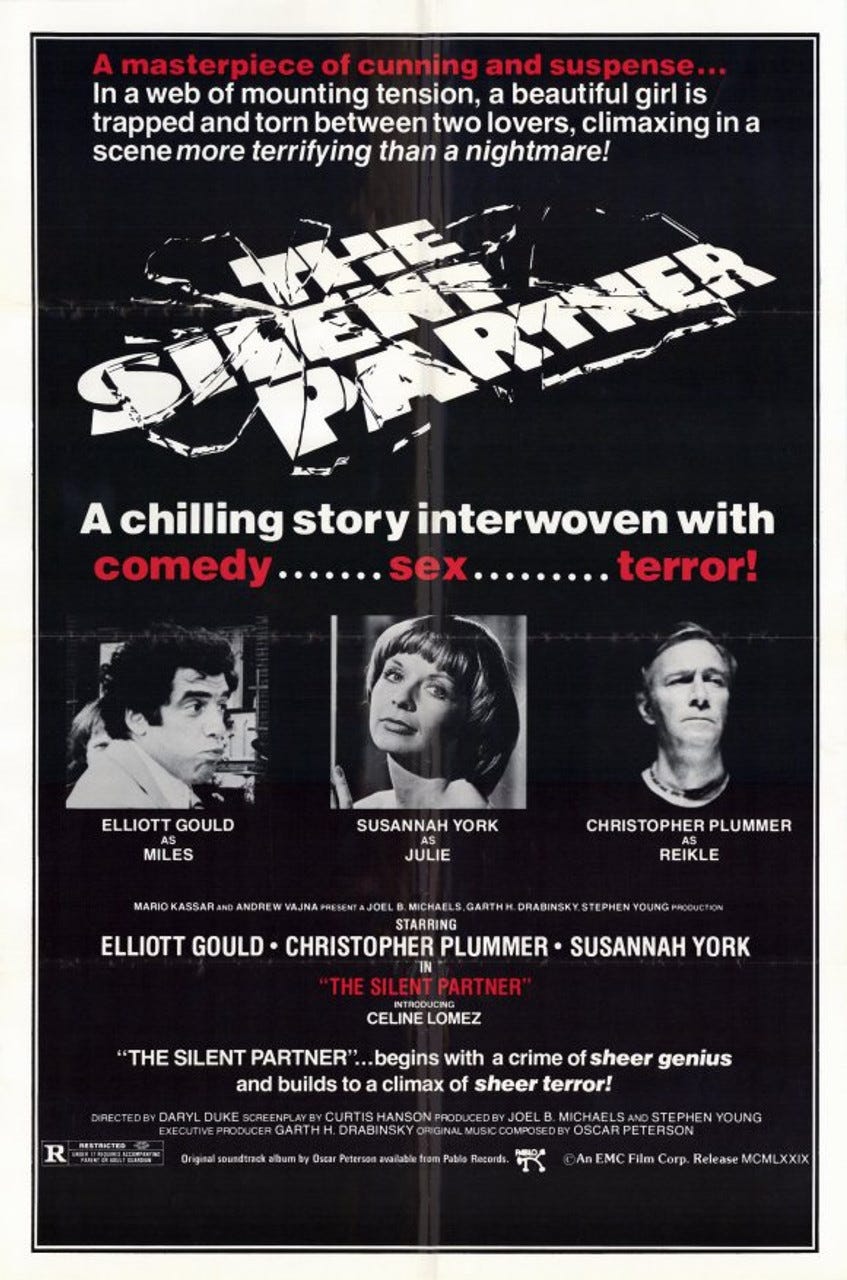

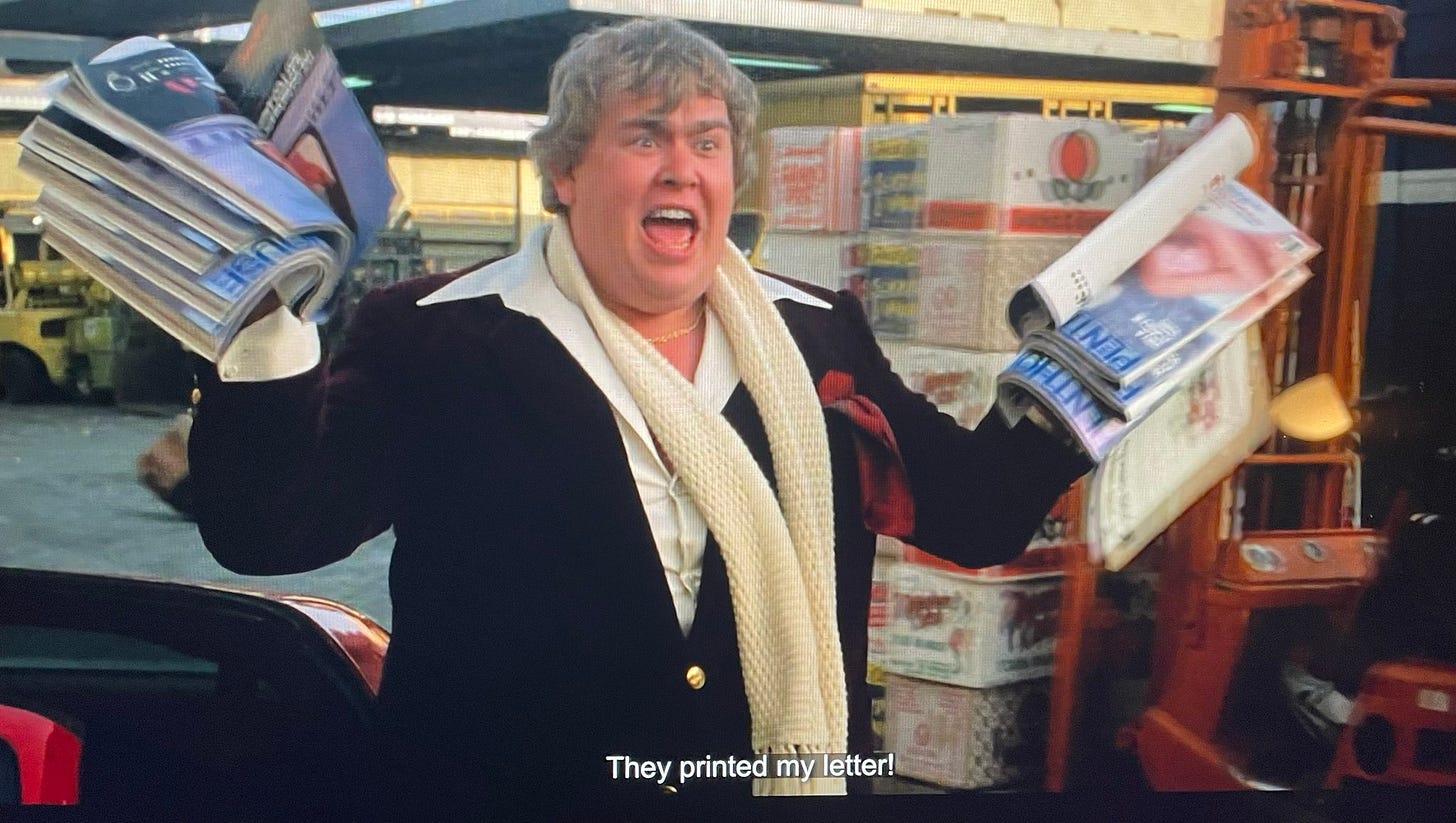
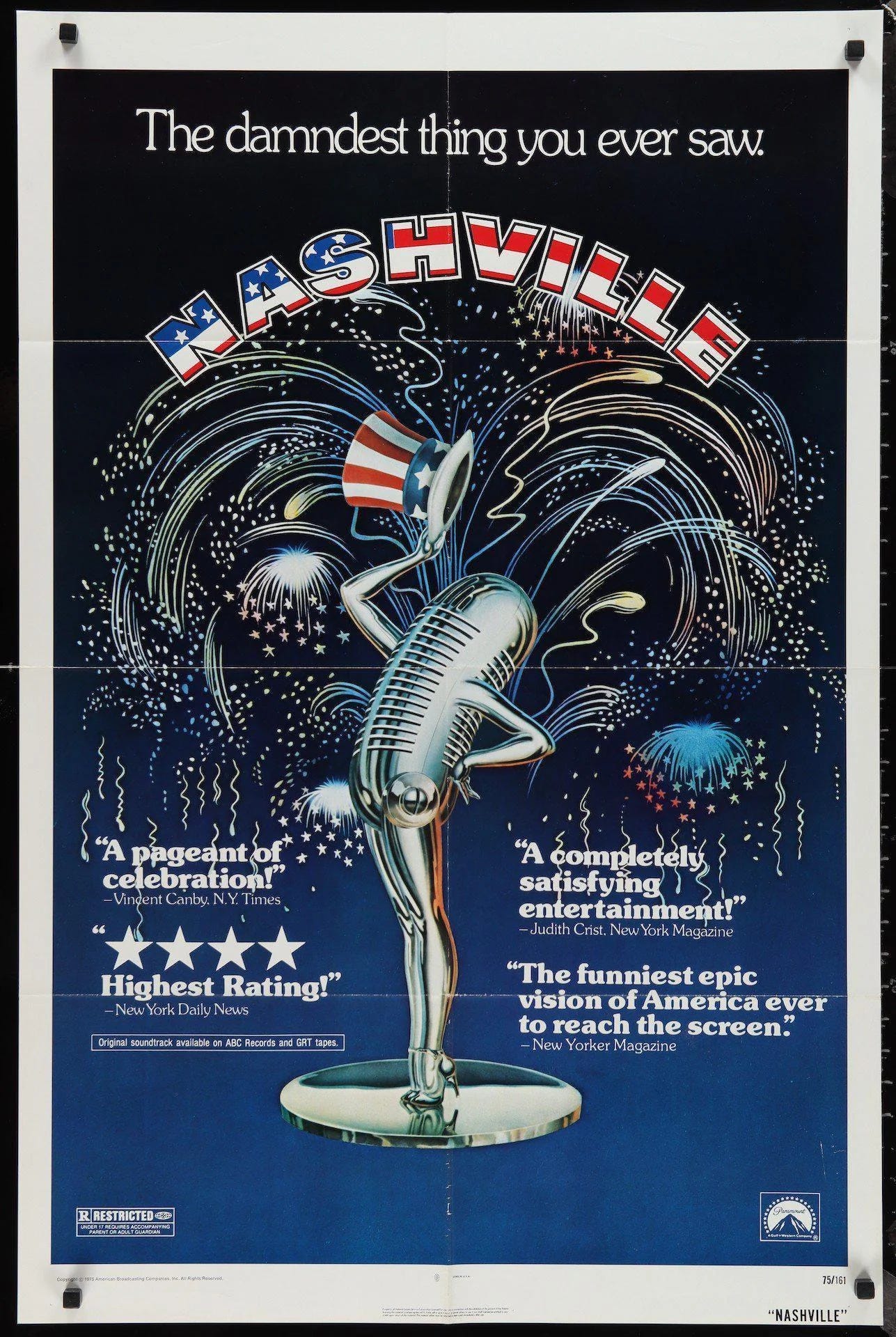

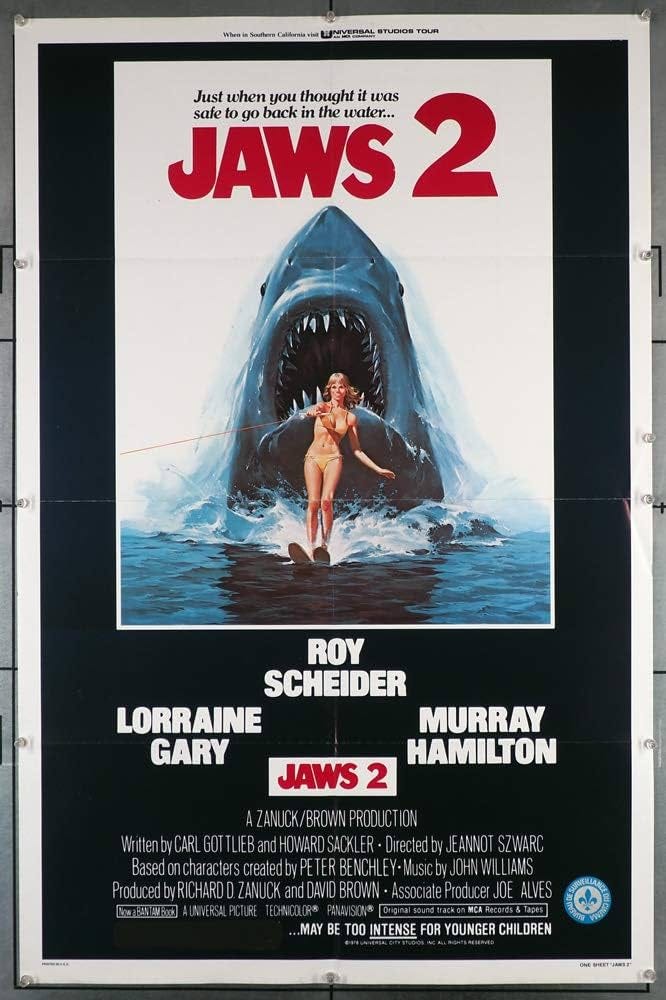

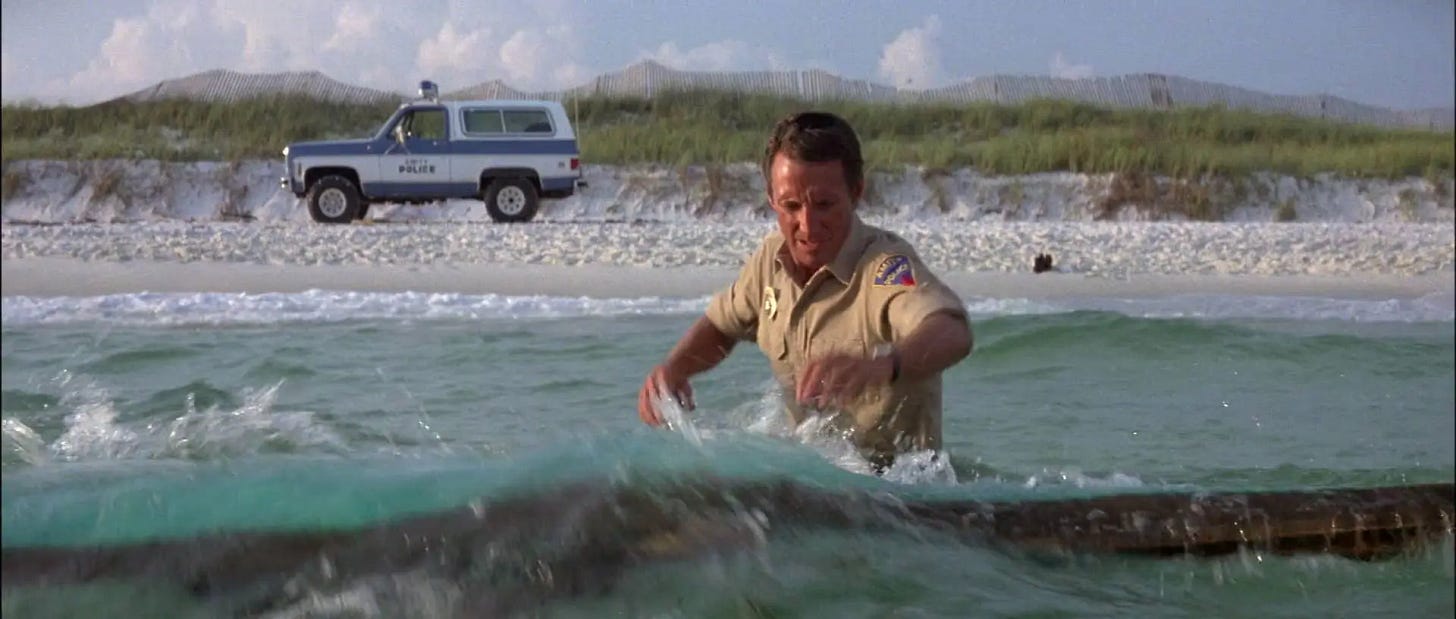
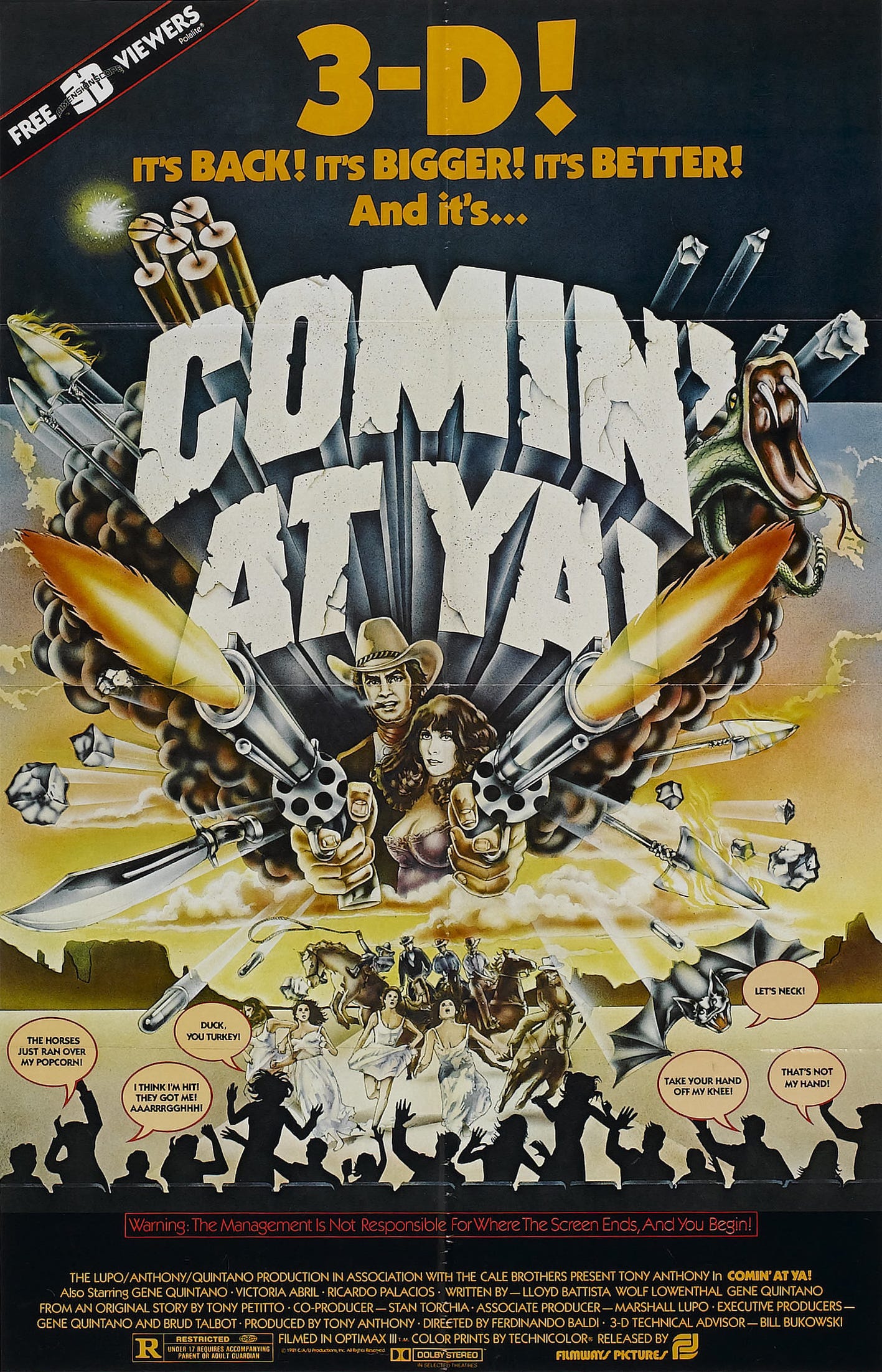


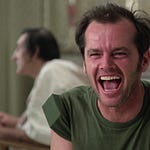

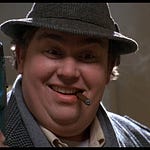
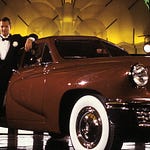



Share this post